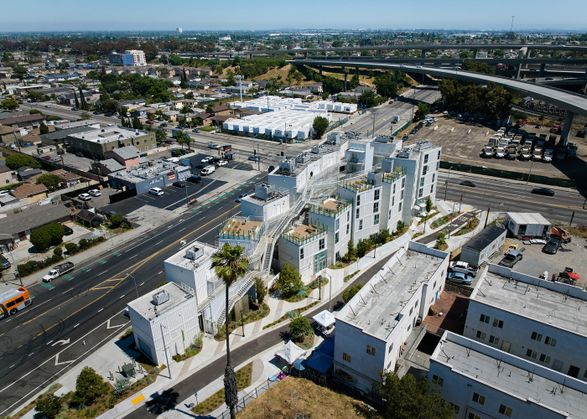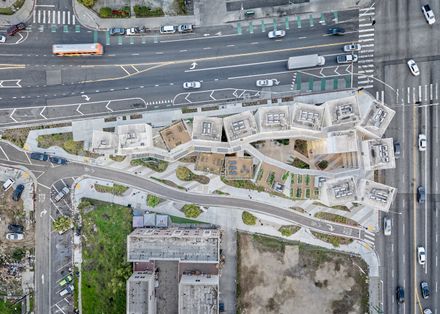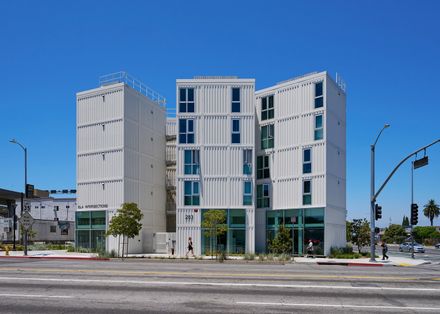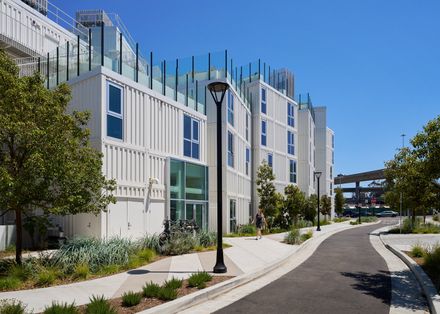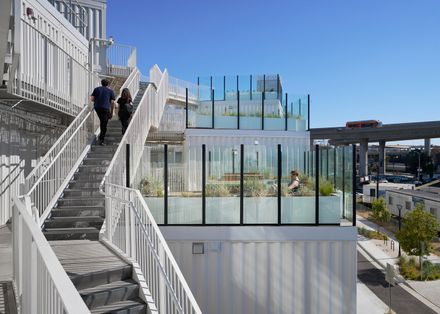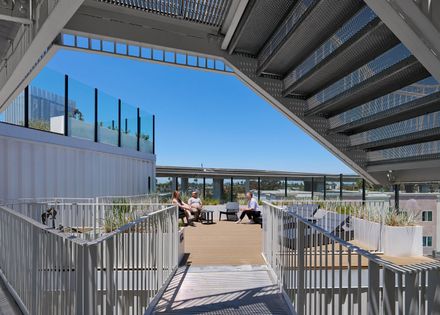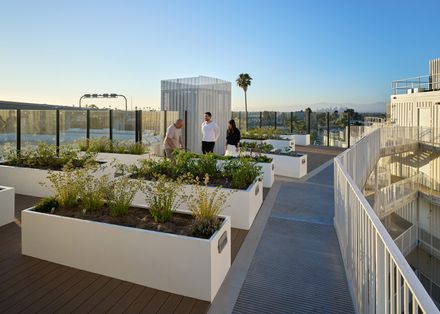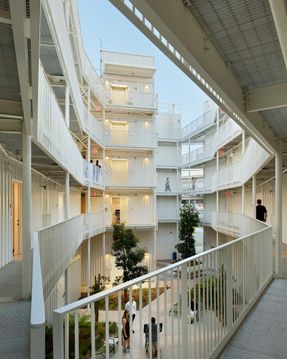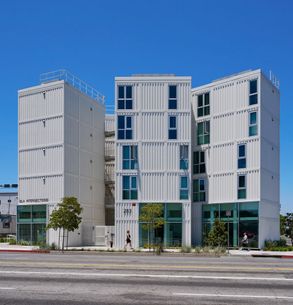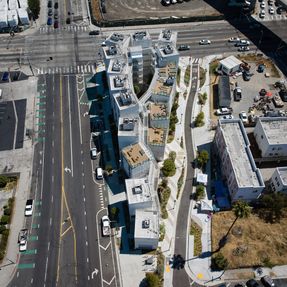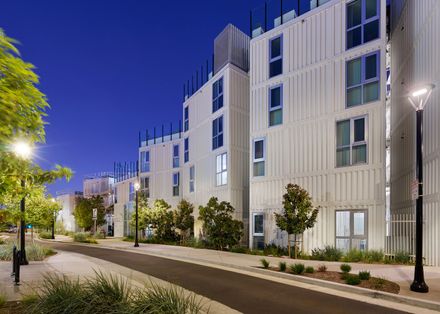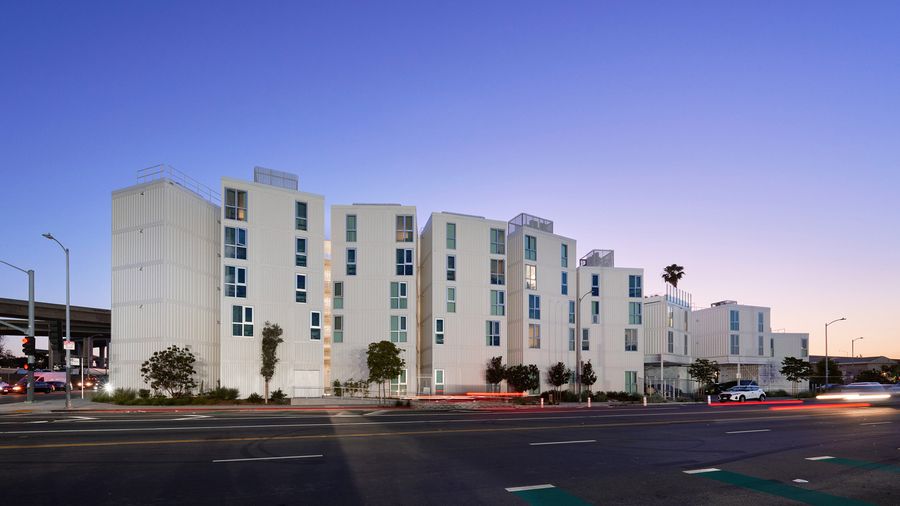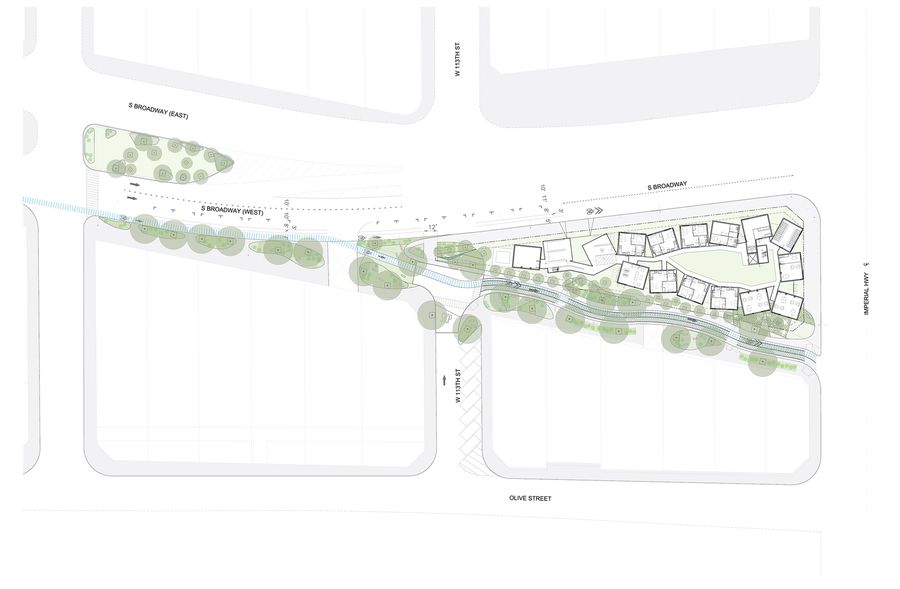Isla Intersections Supportive Housing And Paseo
ARCHITECTS
Lorcan O’Herlihy Architects
PROJECT LEAD
Abel Garcia
PROJECT ASSIST
Santiago Tolosa
MEP ENGINEER
Rosini Engineering
CONSTRUCTION
Geis
STRUCTURAL ENGINEER
Silman
PRINCIPAL IN CHARGE
Lorcan O'herlihy
CIVIL ENGINEER
Dk Engineer Corp
MANUFACTURERS
Soleffect, Trex, Collectif Tournesol , Giant Containers, Growing Hope, Mohawk Flooring, Taylor Metal Products
PROJECT TEAM
Ian Dickenson, Yuval Borochov, Huizhen Ng, Kathryn Sonnabend
CLIENT
Holos Communities
PHOTOGRAPHS
Eric Staudenmaier
AREA
35000 ft²
YEAR
2025
LOCATION
Los Angeles, United States
CATEGORY
Housing
English description provided by the architects.
In 2018, the City of Los Angeles made available some of its more than 1,700 city-owned parcels to affordable housing developers.
Many of these sites are difficult, lying along heavy-traffic corridors or next to freeways. In other instances, the sites are composite parcels that have been left untouched for decades.
In LOHA's second collaboration with non-profit developer Holos Communities, this 35,000-square-foot, 54-unit housing project and adjacent paseo repurpose a 19,814-square-foot triangular site, uniting a traffic island and a former railroad right-of-way.
Situated near one of the world's busiest freeway interchanges—the meeting of the 110 and 105 freeways—the design makes a challenging location more livable.
Isla Intersections is organized along the spine of Broadway Street as a series of sixteen staggered boxes. Each box is assembled from three 20-foot-long by 8-foot-wide modular containers, made with recyclable steel and welded together to form a single 480-square-foot unit.
Each unit is compact and efficient, with an open plan that includes an ADA kitchen, bathroom, living room, and bedroom. The units are stacked and arranged into towers that are connected by a series of walkways to create a single unified building.
The towers are intentionally scattered along the pie-shaped edge of the property, enclosing a sequence of pocket parks that offer surprising moments connecting the landscape to the private residences. The result is a communal outdoor space within the building.
Northward along Broadway, Isla shifts in height, stepping down from five stories to two to respond to the adjacent single-family neighborhood.
This reduced roofline strengthens the connection between the building and the newly designed Annenberg Paseo, which runs between the project and a stretch of freeway interchange, creating a "slow space" that prioritizes pedestrians and cyclists along the west side of the site.
While the project is predominantly residential and green space, the ground level along the paseo will provide storefront spaces for retail, incubation and job training, support services, and administrative offices.
This marketplace and paseo serve as a "living lung," filtering diesel particulates and pollutants.
The landscaping is site-specific, with plant life chosen for its ability to clean the air and offer respite from the surrounding concrete.
Rooftop farms and edible gardens supply pop-up farm stands that provide fresh produce at weekly farmers' markets.
This project aims to become part of a larger network of urban farms in the area, helping preserve the tradition of farming in South Los Angeles and bringing affordable produce to what many consider a "food desert."
One mile east of Isla is Stanford Avalon Community Garden, a nine-acre farm founded after locals successfully fought to preserve their urban agricultural space. Isla aspires to build on this legacy, harnessing the potential to become part of a much larger movement.

